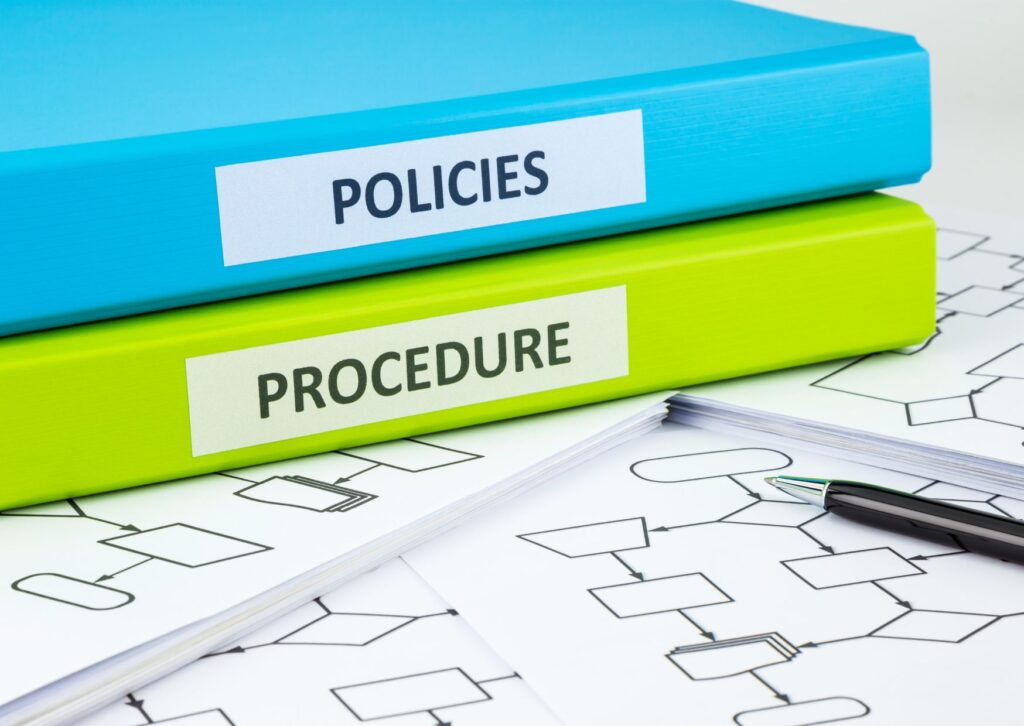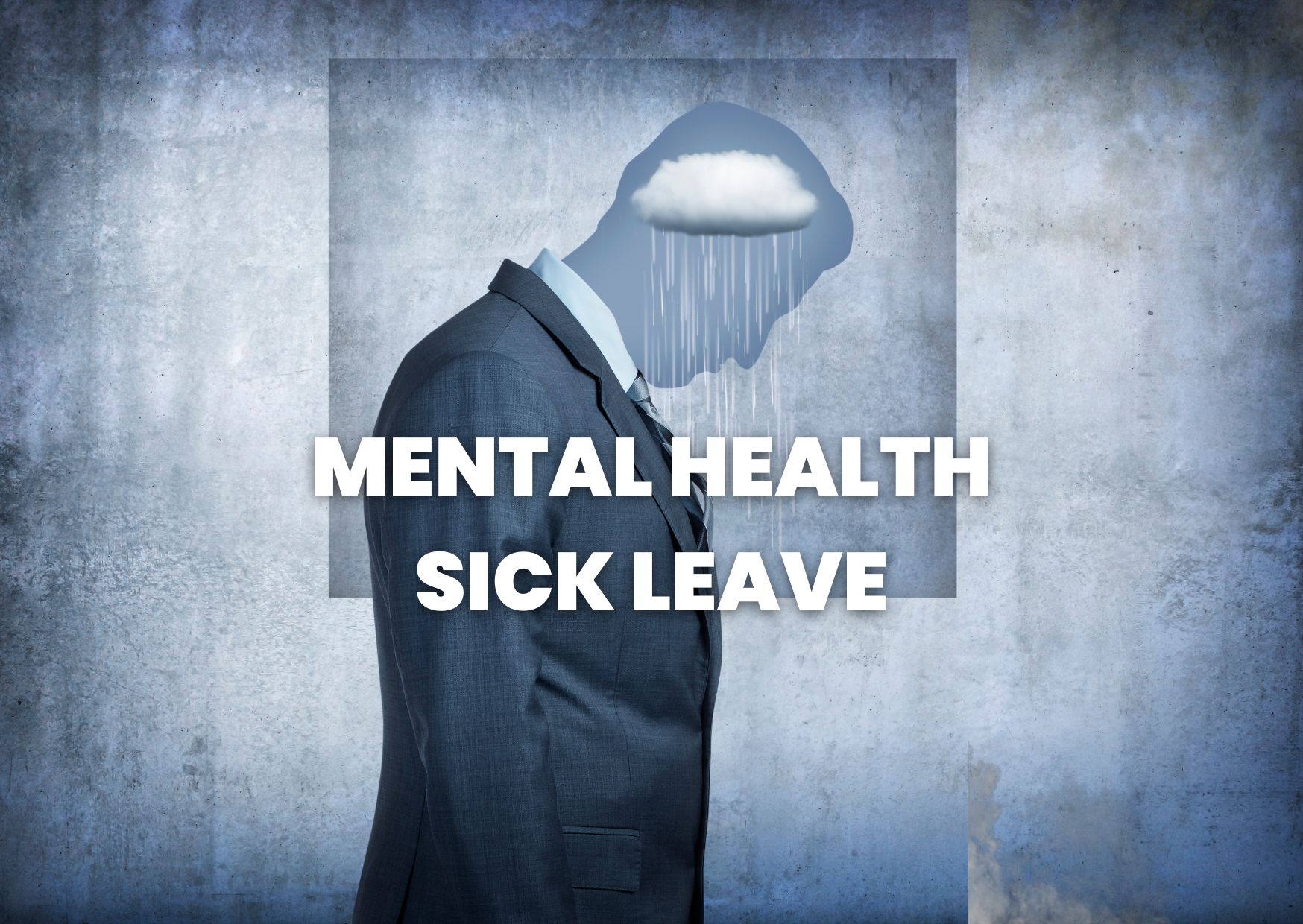Understanding Mental Health Sick Leave | What You Need to Know
Mental health is a vital aspect of our overall wellbeing and can greatly impact an individual’s ability to work and perform daily tasks.
Employers need to understand the concept of mental health sick leave and how it differs from the traditional sick leave.
What is Mental Health Sick Leave?
Mental Health Sick Leave refers to time off that an employee takes due to struggling with a mental health condition that impacts their ability to work.
Sick leave related to our mental health can include time off for diagnosis, treatment and recovery from mental health conditions.
Some of these conditions include: Depression, anxiety and stress.

What is the Law in the UK for Mental Health Sick leave?
In the United Kingdom, laws governing mental health sick leave fall under the Equality Act 2010 and the Health and Safety at Work Act 1974.
The Equality Act prohibits discrimination in the workplace against individuals with mental health conditions, including when taking time off for mental health reasons.
The Health and Safety at Work Act requires employers to take steps to protect the health, safety and welfare of their employees, which includes providing appropriate support for employees experiencing mental health issues.
The UK also has a statutory sick pay system in place, where eligible employees can receive SSP for up to 28 weeks for any type of illness, including mental health issues.
Legally, employers must provide this.
Some employers may offer more than the statutory sick pay, and have policies more generous than the statutory minimum, providing additional paid leave for mental health issues.
There is also a “Fit note” system in place, where a GP or other medical professional can issue a certificate confirming that an employee is suffering from a mental health condition and is unable to work.

What are The Differences Between Traditional Sick Leave and Mental Health Sick Leave?
There are several key differences between traditional sick leave and mental health sick leave.
Traditional sick leave is typically used for physical illnesses and injuries, while mental health sick leave is specifically for mental health conditions.
Additionally, traditional sick leave may have more strict requirements for documentation and proof of illness, while mental health sick leave may have more lenient documentation requirements in order to protect the employee’s privacy and wellbeing.
Some companies have policies in place that allow for more flexible or extended leaves for mental health issues in comparison to physical issues.
Traditional sick leave may also be fully or partially paid, while mental health sick leave may be unpaid or with partial pay, depending on the company’s policies.
Regardless of the reason for sick leave, all UK Employees are entitled to statutory sick pay.

Why are Mental Health Sick Leave Policies Important for Employers to Have?
It is crucial for employers to have policies in place for mental health sick leave, as it provides employees the ability to take time off work to address mental health issues without fear of losing their job or facing discrimination.
This can result in increased employee satisfaction and productivity, as well as decreased absenteeism and turnover.
Additionally, providing mental health benefits can attract and retain top talent, and display a dedication to employee wellbeing and a positive work environment.
Furthermore, it can also help to decrease the overall cost of mental illness in society and promote mental health awareness.
How Can Employers Help Employees With Mental Health Conditions?
Employers can assist employees with mental health conditions in various ways such as:
Create a Positive and Supportive Work Environment
The environment employees work in can have a huge impact on their mental health.
Work environments should be a place where open communication about mental health is encouraged.
Talking about mental health in the workplace can help to reduce the stigma and discrimination often associated with mental health issues.
Creating an environment that supports conversation around mental health issues can help to make employees who may be suffering feel comfortable.

Provide Education and Resources
Education and resources around mental health can help employees to better understand and manage their mental health conditions.
Information provided can often help employees to cope with their mental challenges.
Training can be specifically targeted to support mental health or can be more general, focusing on overall health and wellbeing.
Mental health course, wellbeing webinars, workshops and training programmes are all great options that can help.
Accommodate Employee Needs
To support employee mental health employers should make reasonable adjustments to the working environment or allow flexible working arrangements.
Employers should be doing their best to support their employees through their mental health struggles.
Of course, accommodations need to be reasonable but this should be taken on board by employers.

Offer Employee Assistance Programmes
Employee Assistance Programs (EAPs) are confidential support services provided by employers to employees to assist them with personal and work-related problems that may affect their mental and emotional wellbeing.
They include counselling and therapy, financial and legal advice, and connections to community resources.
EAPs can support employee mental health by giving confidential counselling and therapy, providing advice and resources, reducing stress, increasing productivity, promoting employees to ask for help, and helping employees transition back to work after taking time off for mental health reasons.
Encourage Regular Check-ins
Regular check-ins with employees can support mental health by identifying concerns, fostering open communication, providing support, promoting self-care, increasing employee retention and assisting in achieving goals.
Companies should encourage managers and senior members of staff to check in on employees who may be suffering with mental health issues.
It’s essential to conduct check-ins in a non-judgmental and supportive manner and let employees initiate the check-in if they desire to.
Regularly Review and Improve Mental Health Policies
Periodically evaluating and enhancing mental health policies can support employee mental health by making sure they are current and providing adequate support.
Reviewing policies can also decrease discrimination, increase engagement and productivity, promote employees to ask for help and improve the overall employee experience.
Companies should get employees and experts in the field to review policies together.

How Can Employers Implement Mental Health Sick Leave Policies?
Employers can implement mental health sick leave by creating and implementing policies around this.
This policy should outline the process for requesting and taking mental health leave, the length of leave that will be granted, and any requirements for documentation or follow-up.
Employers should clearly communicate policies to employees, make sure they are easy to access, understand and follow.
Providing education, training and resources to employees on mental health and related topics can also be helpful.
Employers should also consider offering an Employee Assistance Program (EAP) or other mental health resources to support employees during their leave as well as their return to work.
It’s important to note that different countries have specific laws related to time off work due to mental health issues and employers should check the laws and regulations of their country to ensure that their policy is compliant.

Author
Tyler Lowe – Health & Wellbeing Speaker
BSc Sport & Exercise Rehabilitation


